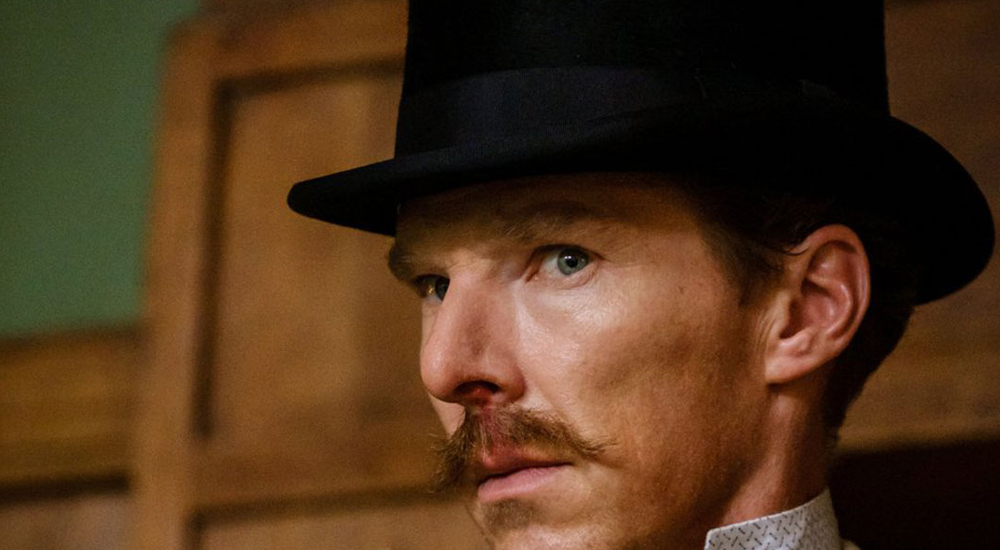"They are … like us."
A hefty meeting and a job proposal is how Will Sharpe begins The Electrical Life of Louis Wain, a biographical look at the renowned illustrator who made a career out of drawing cats. Calm and serene, the film offers little in the way of ingenuity, making up for it with a slew of incredible performances, lead by Cumberbatch as the titular character.
With bills mounting and a family to support, Cumberbatch's timid and aloof Wain doesn't appear to understand the gravity of the situation. He turns down the job offer and returns home to a financially stressed household longing for a sense of security. But, unbeknownst to Wain, a new expense has just entered the situation; a governess tasked with teaching the young ones.
Enter Claire Foy as Emily Richardson. Remarkable beyond words, Foy brings a warm, calming energy to film, one that lasts throughout. Though a romantic relationship is immediately deemed inevitable, the couple's future is anything but as expected. A class issue rests at the base of their courtship, one that Sharpe highlights without venturing too deep. The film works hard to stay positive, even as the world around Wain and his family refuses to do the same. But Wain, in typical artist fashion, blocks everyone else out, including his sister Catherine, who needs a supportive man to assist her in keeping the family afloat.
A night at the theater, where Louis and Emily attempt to enjoy an evening out, is interrupted with degrading comments made by a neighbor. The moment, which passes quickly, summarizes how Sharpe approaches Wain's story - surface level.
Painfully depressing and gut-wrenching, Wain didn't lead a kind life. Quite the opposite. Creative and immensely talented, a businessman he most definitely was not. As a result, Wain struggled mightily, losing copyright to his work as mass printers profited off his creations. As he aged, the lack of ownership of his illustrations would become a sticking point, a detail that is addressed and quickly forgotten within the context of the film.
We never meet Wain's father. He is dead prior to the job offer. His mother never fully recovers, and he is met with many hardships as he navigates the lousy hand he's dealt. But his spirit never falters. Much like his paintings, Wain looks to exist, making the most out of the situation, always sure that things will work out. Even when his sister gets mad, prompting a move to the countryside, there is no panic. However, I must note that no one feels compelled to discuss a solution to the family debt that continues to mount.
Even as Wain's illustrations gain popularity and he receives more commission work, Sharpe keeps clear. Through a quick-paced montage, we assume an increase in success, but we visually never witness it.
The final scenes are hard to watch, pulling at your heartstrings as you witness a man who has brought such joy to his fans struggle. Suffering from a mental illness, he doesn't have the money to afford a nice room, unable to enjoy his final days in peace and tranquility. We've spent the last two hours getting to know the artist through a heavily filtered lease. The abrupt decline, beautifully captured through a tremendous performance by Cumberbatch, only makes the heart hurt more.
In many ways, this is the only misstep by Sharpe. To keep everything cordial, we skip the melancholy. The heartache appears abridged for time, and the elation muted. Maybe it is a sign of the times when emotions didn't venture too far off the ordinary to maintain a degree of groundless. Regardless, The Electric Life of Louis Wain is an enjoyable ride. I cannot speak to the accuracy of the depiction, but Cumberbatch and Foy make one dynamic team.

